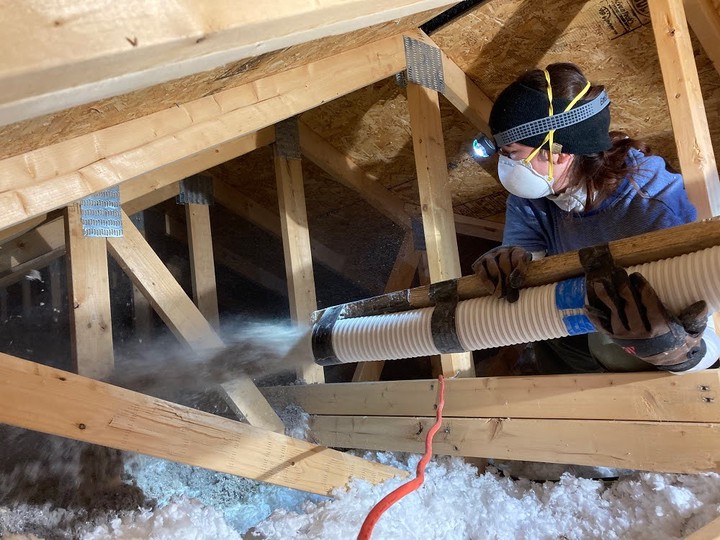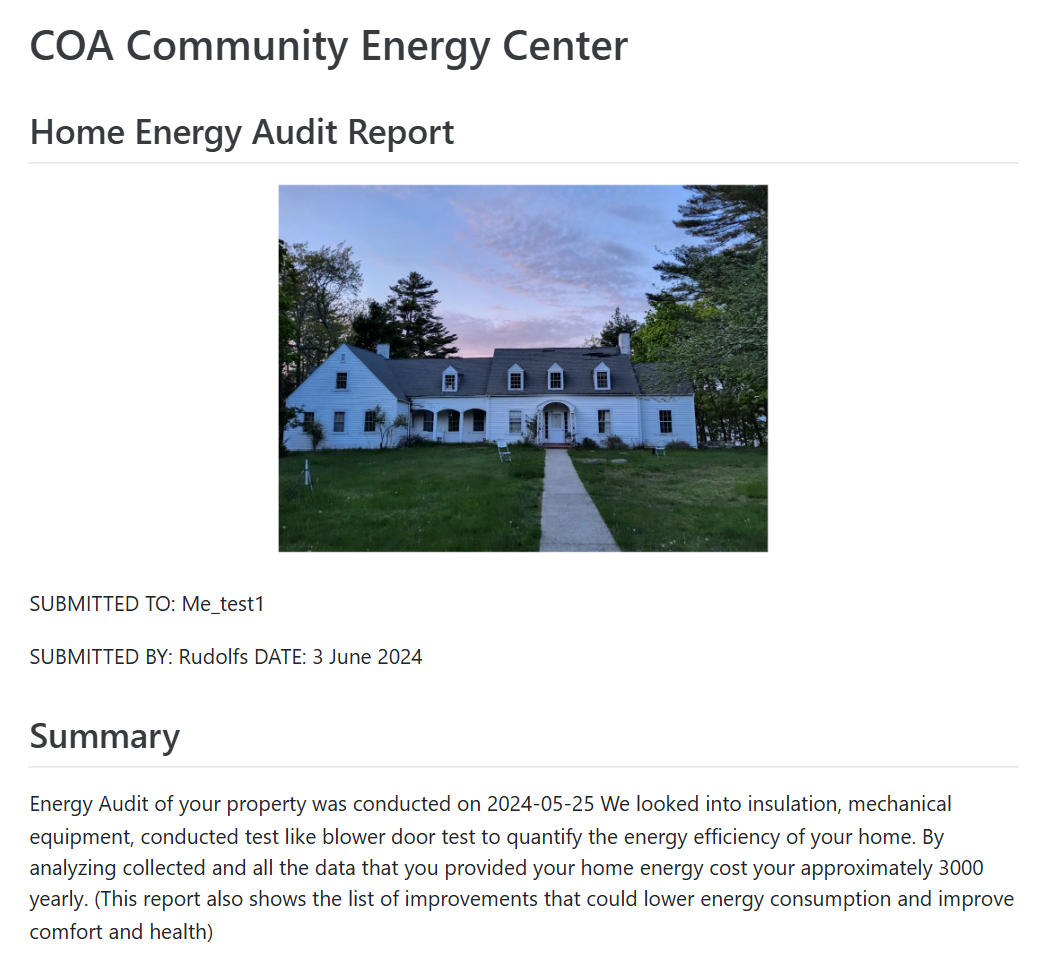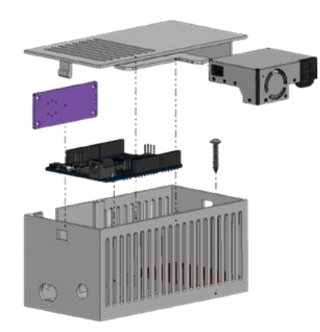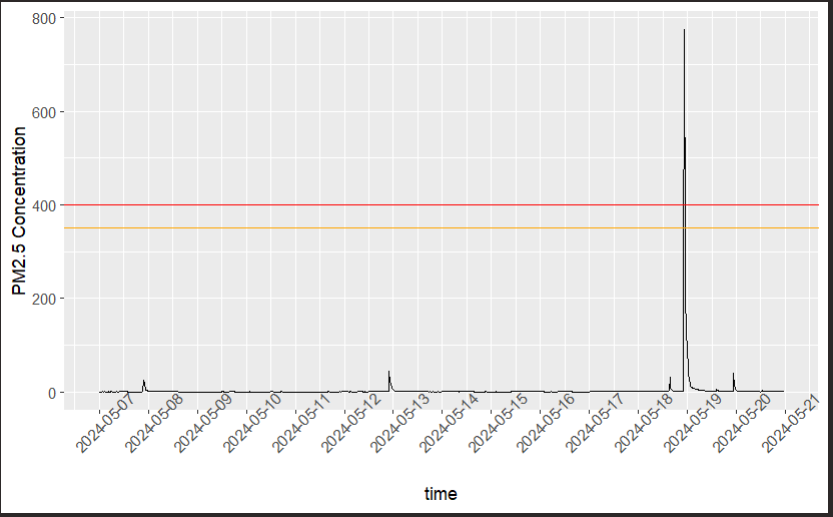Developing a Comprehensive Monitoring Program for Community-wide Energy Efficiency Upgrades
 COA energy students insulating an attic space on campus.
COA energy students insulating an attic space on campus.
Project Background
For our project we worked with the Maine Community-wide Comprehensive Energy
Upgrades Program to develop their website and create a
reproducible energy audit report template using Quarto.
The Maine Community-wide Comprehensive Energy Upgrades Program (MCWCEU) is a Government-funded program committed to providing free high-quality energy audits and catalyze low-cost energy improvements to Maine homeowners. Implemented by the COA’s Community Energy Center directed by David Gibson. As a pilot program, CEC is starting their services with the Great Cranberry Island community this summer 2024. The participating home owners will be provided with a free comprehensive energy audit, giving them an objective look at their home’s energy systems. Then, they will be provided several options for improving their home’s efficiency, and CEC will negotiate with contractors on homeowners behalf to integrate the solutions they choose. Throughout this process, CEC will consider all available options and ensure participants gain the most benefit for the lowest cost available, both through government rebates and community-wide benefits.
Project Outputs
Website
This website serves as the project hub for information surrounding the government grant, the community energy center, what the project is trying to accomplish, how it will accomplish it and what that accomplishment looks like. This website is for potential and current participants to get updated, accurate information regaring home energy audits, government rebates and other related information.
Quarto Reproducible Reports
We created a reproducible Energy Audit template using Quarto. It will be used for energy audits for the Maine Community Wide Comprehensive Energy Upgrades program. The work flow for the creation of the audits is:
-
Collect the data (happens during an audit)
-
Report the data to google form (happens during/after the audit)
-
Render the reports (happens after data reporting)
After rendering the report the homeowners would have access to comprehensive summer about their property. For the data collection, reporting and rendering the Building Performance Institute (BPI) Standards are followed closely. As the energy auditors are BPI certified. Audits look into insulation, energy bills, heating sources, windows, excessive moisture, air barriers, domestic water heating etc. Here is just a glimpse of what the summary of the energy audit looks like.

Arduino Air Quality Dashboard
Some of the homes participating in the project will have wifi enabled Arduino air quality monitors installed in them, so one of the goals of this project was to develop a way to analyze the data from the monitors to assess the impacts of energy upgrades. The monitors output a readout every 20 minutes that includes temperature, relative humidity, PM10 and PM2.5 concentrations, nitrogen oxide index, and volatile organic compound index.

Using a third party R package called rduinoiot, developed by Flavio
Leccese, we were able to link the Arduino API to R in order to pull the
data into a dataframe. Using this, we will develop an RShiny web app
dashboard to easily navigate and summarize the data. In the future, we
would like to implement a database in order to analyze the data over
longer timescales and improve app response speed, and potentially
implement the ability for the owners of homes with monitors installed to
log in and view the data from their, and only their, monitor.

Team
Mabon Young - COA ‘26 - Website and Arduino
Adler Garner - COA ‘26 - Website and Case Studies
Rudolfs Lukasevics - COA ‘25 - Website and Quarto Reproducible Report
Data
Access the project on github.
Resources
-
Reproducible Reporting with Quarto by Jadey Ryan
Thanks to: David Gibson and Nicole Grohoski the director of energy and energy project manager at COA; Laurie Baker, CEDS Instructor; Nicolo Mega, Arduino monitor designer and producer; Flavio Leccese, rduinoiot developer